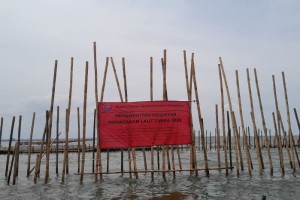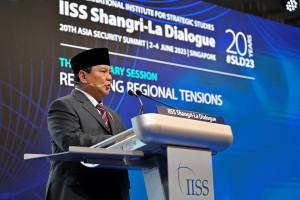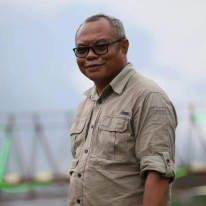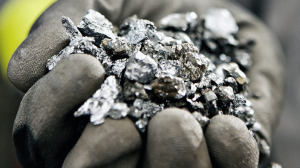Indonesian Navy Chief-Turkish Ambassador discuss defense cooperation
The Chief of Staff of the Indonesian Navy Admiral Muhammad Ali recently received a courtesy visit from Ambassador of Turkiye to Indonesia, H.E. Talip Küçükcan.
The Indonesian Navy chief was accompanied by senior officials from the Navy Headquarters at the Admiral Room of the Navy Headquarters in Cilangkap, East Jakarta, on Tuesday, March 26, 2024.
The purpose of the Turkish Ambassador's visit to the Indonesian Navy Headquarters was to strengthen ties and enhance cooperation between Turkiye and Indonesia, particularly with the Indonesian Navy.
During the meeting, Ambassador Küçükcan conveyed that the friendship between Indonesia and Turkey has long been established and will continue to be nurtured.
He expressed gratitude for the warm reception from Admiral Muhammad Ali and senior officials of the Indonesian Navy.
According to the Indonesian Navy Public Relations Office, the Navy Chief and the Turkish Ambassador discussed about proposed cooperation in the logistics field between the two countries.
Ambassador Küçükcan also mentioned that Turkey would invite the Indonesian Navy to participate in The Turkish Navy (TURN) activities in 2025.
Subsequently, Navy Chied expressed appreciation of the visit by Ambassador Küçükcan and his staff at the Navy headquarters, as well as the cooperation that has been carried out so far.
"Furthermore, we thank Turkiye for their presence and participation in the implementation of the first Navy To Navy Talks (NTNT) forum in 2023, which serves as a platform for future cooperation between the two navies. NTNT will be held again in 2025. Additionally, there is the Maritime Task Force (MTF) activity where both countries are involved in deploying their warships to operate and secure the waters of Lebanon under the mandate of the UNIFIL," Muhammad Ali said.
He also cited that the Indonesian Navy plans to invite The Turkish Navy (TURN) to participate in sailing activities and the ASEAN Cadet Seminar (ASEAN Plus Cadet Seminar and Sail).
ATMACA missiles and modernization
Quoted from Antara on February 6, 2024, Muhammad Ali revealed the possibility of Turkey collaborating with Indonesia to jointly produce anti-ship cruise missiles domestically.
This cooperation is believed to be part of the purchase of ATMACA missiles made by the Turkish company Rocketsan, which modernizes the armaments of Indonesian Navy warships.
Although there was no explanation about the procurement of Atmaca missiles during the meeting between the Navy Chief and the Turkish Ambassador, it is believed that there were discussions about Indonesia's plans to acquire Atmaca missiles for use on Indonesian Navy warships.
"The ATMACA missile is quite good, comparable to the Harpoon, comparable to the Exocet, but it is made in Turkey, and Turkey plans to cooperate with local products, with local components, so it can be expected to become a national missile. But that is still subject to further discussion, not final," Muhammad Ali said in February.
In the presentation by National shipbuilder PT PAL to the Indonesian Defense Minister Prabowo Subianto, the state-owned shipyard is likely to install ATMACA missiles on several ships, including the Parchim class, Fatahillah class, and FPB-57 class. In their presentation, PT PAL mentioned that the ATMACA missile has a range of up to 220 kilometers.
Regardless, Muhammad Ali stated that the Indonesian Navy is still studying which ships will be equipped with ATMACA missiles.
"There are indeed 41 ships planned for refurbishment (modernization) gradually, but we cannot do it all at once. We are studying, examining again which ones could be equipped with ATMACA missiles," he said
In the same presentation, when Defense Minister Prabowo visited the PT PAL shipyard, the domestic shipbuilder reported that the progress of modernizing 41 ships had reached 40 percent. A total of 25 warships have had their hulls repaired.
Some of the types of ships included in the modernization project are fast patrol boats (FBB) class, Parchim class, PKR class, Sigma class, Bung Tomo class, and Corvette Fatahillah class.
On the same occasion, Prabowo also requested the Indonesian Navy to reconsider other ships that also need modernization.
"Please re-examine all platforms that can be modernized; we will modernize them," Prabowo told PT PAL.
Several foreign media outlets recently reported that Indonesia, through PT Republik Defesindo, purchased 45 units of ATMACA missiles from Rocketsan, which will be allocated to the Indonesian Navy.
If this purchase is confirmed, then the Indonesian Navy will become the first foreign user of the domestically produced Turkish anti-ship cruise missile.
Already have an account? Sign In
-
Start reading
Freemium
-
Monthly Subscription
30% OFF$26.03
$37.19/MonthCancel anytime
This offer is open to all new subscribers!
Subscribe now -
Yearly Subscription
33% OFF$228.13
$340.5/YearCancel anytime
This offer is open to all new subscribers!
Subscribe now






